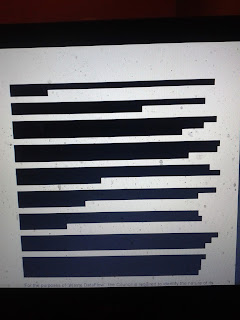With the current state of the streets in areas of Derby blighted by fly tipped waste, in the image below it's recyclable waste dumped on Middleton Street, Normanton
recycling bins being removed because of claims that residents don't use them correctly
http://www.derbytelegraph.co.uk/Rubbish-bins-Derby-s-green-protesters-blues/story-25756604-detail/story.html which has been questioned on this blog before due to a lack of evidence and then the dire spiral downwards of the cities recycling rate from a high of 48% to a new predicted low of 32% covered in this previous blog post
http://derby-waste-a-rubbish-blog.blogspot.co.uk/2014/12/the-decay-of-recycling-in-derby.html . It would seem a simple no brainer to spend a healthy amount of the councils waste budget on waste minimisation and education.
Sadly this is not the case as a recent FOI request on the subject put into Derby City Council after I viewed the councils accounts highlighted that in total the council was spending less than £50,000 on waste minimisation and education while paying Resource Recovery Solutions - RRS (a Shanks waste company) over £8.66 million for disposal of waste and operation of the Raynesway HWRC site. Of that £8.66 million less than £34,000 was paid to RRS for minimisation and education and when added to the spend from outside of the waste contract the figure was less than £50,000.
It struck me why are we paying a waste contractor over £8 million to handle waste - much of which will end up landfilled or incinerated via a contract which cost in 2013/14 £118 per tonne when the alternatives being reduction, reuse and recycling cost £10 per tonne or less! The council keep telling us they have no money due to government cuts but they are actually preferring to handle waste via its most expensive route.
Come on its a no brainer isn't it ? every tonne extra recycled costing the council £10 or reduced - costing the council nothing is a tonne the council isn't paying £118 a tonne to dispose of.
On 28th January I went to the Full Council meeting at Derby City Council to put a public question to the council in relation to why the council is spending so much on disposal compared to educating residents.
f. Question from Simon Bacon to Councillor Afzal
In 2013/14 Derby City Council paid Resource Recovery Solutions - a SHANKS company £8,666,724 to handle 79,995 tonnes of the waste of Derby. Of that just £33,279 was spent on waste minimisation and education and when added to non RRS spend on waste minimisation and education of £13,984 equates to spending less than £50,000 on sustainable waste management education.
Why is Derby City Council spending so little on waste reduction while spending so much on disposal via landfill and incineration.
The response was a fair bit of waffle about what they are going to do bla bla bla but they also set out that Household waste management costs for 2012/13 published by Department of Communities and Local Government (DCLG) and reported by the Audit Commission, indicate that of £3.3 Billion spent nationally on household waste management, only £25.6 Million was spent of waste minimisation, which is less than 1% of the total national spend on household waste. Derby allocated around 0.5% of its 2013-14 waste spends on recycling and waste reduction initiatives. However, the national average cannot be considered an absolute target for spend and the city is satisfied it has got good value for money from the budget it has spent on educating its residents and young people in waste matters.
What the council is admitting there is that it spends less than the national average on waste education at a time when the streets are in a state, blue bin recycling is being removed and the recycling rate is spirally downwards.
As a follow up question I asked at a time when recycling is going so wrong in Derby is the council spending so little.
The answer came from the leader of the council Ranjit Banwait who indicated they couldn't spend more on waste education due to government cuts. What Councillor Banwait ignores in saying this is the saving that comes from educating residents on waste disposal becomes self financing due to the gulf between recycling costing £10 and residual disposal costing £118 - every tonne diverted via education saves £108 !
Landfilling and incinerating waste is rubbish ! we should be educating residents how to dispose of their waste in the correct way leading to cleaner streets, better, higher recycling rates and reduced disposal costs -
SAVING US MONEY !
©SIMON BACON 2016













